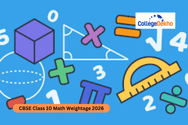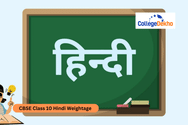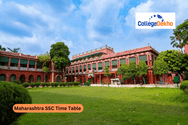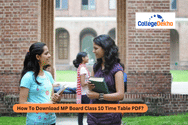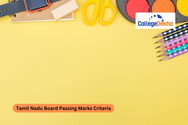PSEB Class 10 Previous Year Question Papers can help you to revise for the exams efficiently. You can also pick up model test papers along with previous years' question papers to check out the commonly asked topics and exam format.
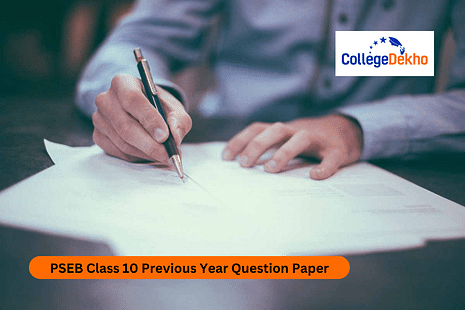

Never Miss an Exam Update
PSEB Class 10 Previous Year Question Papers are provided online by the Punjab board for all subjects. The question papers include a variety of questions in different sections. From short to long questions, students can practice writing answers for each of the questions. They can also check the marks allocated to all the questions. By solving the previous year's question papers for various years, students get knowledge of the pattern of questions. This makes it possible for them to prepare the questions. Through regular practice of writing the answers, students can learn to manage time. They can analyse their performance and focus on the weak topics. Continue reading the article for more information about the PSEB Class 10 Previous Year Question Papers.
Also Read - PSEB 10th Syllabus 2025-26
PSEB Class 10 Latest Updates 2026
- January 13, 2026: Punjab board 10th exams 2026 are to be hekd from March 06 to April 01, 2026. The students can check the PSEB 10th Date Sheet 2026 to know the exam dates for their subjects. Before the exams, the Punjab board will release the admit cards too.
PSEB Class 10 Previous Year Question Paper (2023)
You can download the previous years' question papers for the academic year 2023 from the table given below:
Subject | Download PDF |
|---|---|
| Mathematics | |
Computer Science | |
| Science | |
English | |
| Hindi | |
Physical Education | |
Punjabi |
PSEB Class 10 Previous Year Question Paper (2019)
The PSEB 10th question papers of 2019 have been provided below for the students to download:
Subject | Download PDF |
|---|---|
Computer Science | |
English | |
Health and Physical Education | |
Health Care | |
Hindi B | |
Hindi | |
IT | |
Maths | |
Punjabi Paper A | |
Punjabi Paper B | |
Science | Click here |
Also Read- PSEB 10th Model Paper 2026
PSEB Class 10 Previous Year Question Papers (2018)
Students can check and download the PSEB 10th Previous Year Question Papers of 2018 from the table below:
Subjects | Download PDF |
|---|---|
Agriculture | |
Computer Science | |
English | |
Health and Physical Education | |
Hindi (A) | |
Hindi (B) | |
Hindi (C) | |
Maths (B) | |
Maths (C) | |
Punjabi (A) | |
Punjabi (B) | |
Science (A) | |
Science (B) | |
Science (C) | |
Social Studies (A) | |
Social Studies (B) |
How to Download PSEB Class 10 Previous Year Question Papers?
Students can follow the simple steps given here to download the PSEB Class 10 previous year question paper for all subjects.
- Step 1 - Go to the official website of the Punjab board at pseb.ac.in
- Step 2 - Click on Academic Wings. Through the scroll down option, check the options and click on Question Bank.
- Step 3 - A new page will open, click on Class 10th.
- Step 4 - A list of subjects will open. As per your subjects, click on the link and get the question paper.
Why is it Important to Solve the PSEB Class 10 Previous Year Question Papers?
There can be various benefits of solving the PSEB Class 10 previous year question papers, such as:
- Get introduced to the variety of questions. Able to solve different types of questions easily.
- Manage time while answering the questions. It helps you divide the required amount of time for each question.
- Write answers as per the marks allotted to the questions.
- Good idea of exam pattern and marking scheme.
FAQs
By solving the PSEB Class 10 Previous Year Question Paper, students get familiar with the variety of questions, number of questions, and marking scheme. Through regular practice of solving the questions, students can score above 90 marks in board exams.
PSEB Class 10 Previous Year Question Papers include questions that already appeared in board exams. The students will find similar types of questions in board exams as asked in previous year question papers. They will learn the pattern of question and marking scheme for both papers.
Yes, the board provides PSEB Class 10 Previous Year Question Paper for Science. The students can download the Science question paper PDFs for different years. They can practice the question papers and get familiar with the variety of questions.
The students can visit the official website of the Punjab board and download the PSEB Class 10 Previous Year Question Paper for Mathematics. The question papers are available in PDF formats for all subjects.
After completing the syllabus, the students can download the PSEB Class 10 Previous Year Question Paper for all subjects and start solving the questions. They can try to solve the short questions first as the section will take less time. While solving the long questions, students can dedicate more time to the section.




